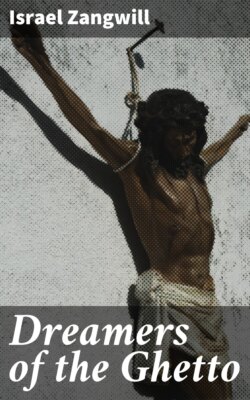Читать книгу Dreamers of the Ghetto - Israel Zangwill - Страница 20
На сайте Литреса книга снята с продажи.
IX
ОглавлениеHe had not long to wait. To give the crowd an execution was to crown the Carnival. Condemned criminals were often kept till Shrove Tuesday, and keen was the disappointment when there was only the whipping of courtesans caught masked. The whipping of a Jew, found badgeless, was the next best thing to the execution of a Christian, for the flagellator was paid double (at the cost of the culprit), and did not fail to double his zeal. But the execution of a Jew was the best of all. And that Fra Giuseppe was a Jew there could be no doubt. The only question was whether he was a backslider or a spy. In either case death was his due. And he had lampooned the Pope to boot—in itself the unpardonable sin. The unpopular Pontiff sagely spared the others—the Jew alone was to die.
The population was early astir. In the Piazza of the People—the centre of the Carnival—where the stake had been set up, a great crowd fought for coigns of vantage—a joyous, good-humored tussle. The great fountain sent its flashing silver spirts towards a blue heaven. As the death-cart lumbered into the Piazza ribald songs from the rabble saluted the criminal's ears, and his wild, despairing eyes lighted on many a merry face that but a few hours before had followed him to testify to righteousness; and, mixed with theirs, the faces of his fellow-Jews, sinister with malicious glee. No brother friar droned consolation to him or held the cross to his eyes—was he not a pestilential infidel, an outcast from both worlds? The chief of the Caporioni was present. Troops surrounded the stake lest, perchance, the madman might have followers who would yet attempt a rescue. But the precautions were superfluous. Not a face that showed sympathy; those who, bewitched by the Friar, had followed his crucifix and pallio now exaggerated their jocosity lest they should be recognized; the Jews were joyous at the heavenly vengeance which had overtaken the renegade.
The Dominican Jew was tied to the timber. They had dressed him in a gaberdine and set the yellow cap on his shaven poll. Beneath it his face was calm, but very sad. He began to speak.
"Gag him!" cried the Magistrate. "He is about to blaspheme."
"Prithee not," pleaded a bully in the crowd. "We shall lose the rascal's shrieks."
"Nay, fear not. I shall not blaspheme," said Joseph, smiling mournfully. "I do but confess my sin and my deserved punishment. I set out to walk in the footsteps of the Master—to win by love, to resist not evil. And lo, I have used force against my old brethren, the Jews, and force against my new brethren, the Christians. I have urged the Pope against the Jews, I have urged the Christians against the Pope. I have provoked bloodshed and outrage. It were better I had never been born. Christ receive me into His infinite mercy. May He forgive me as I forgive you!" He set his teeth and spake no more, an image of infinite despair.
The flames curled up. They began to writhe about his limbs, but drew no sound to vie with their crackling. But there was weeping heard in the crowd. And suddenly from the unobservedly overcast heavens came a flash of lightning and a peal of thunder followed by a violent shower of rain. The flames were extinguished. The spring shower was as brief as it was violent, but the wood would not relight.
But the crowd was not thus to be cheated. At the order of the Magistrate the executioner thrust a sword into the criminal's bowels, then, unbinding the body, let it fall upon the ground with a thud: it rolled over on its back, and lay still for a moment, the white, emaciated face staring at the sky. Then the executioner seized an axe and quartered the corpse. Some sickened and turned away, but the bulk remained gloating.
Then a Franciscan sprang on the cart, and from the bloody ominous text patent to all eyes, passionately preached Christ and dissolved the mob in tears.
